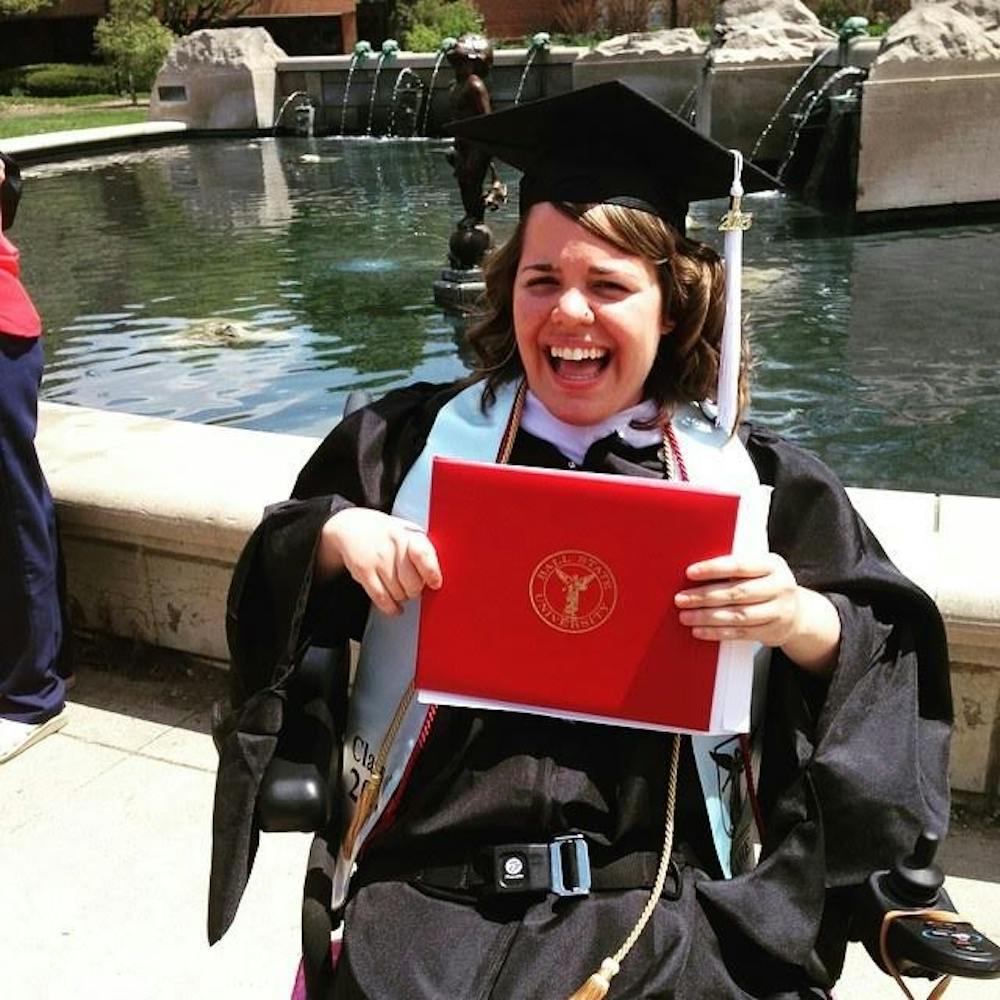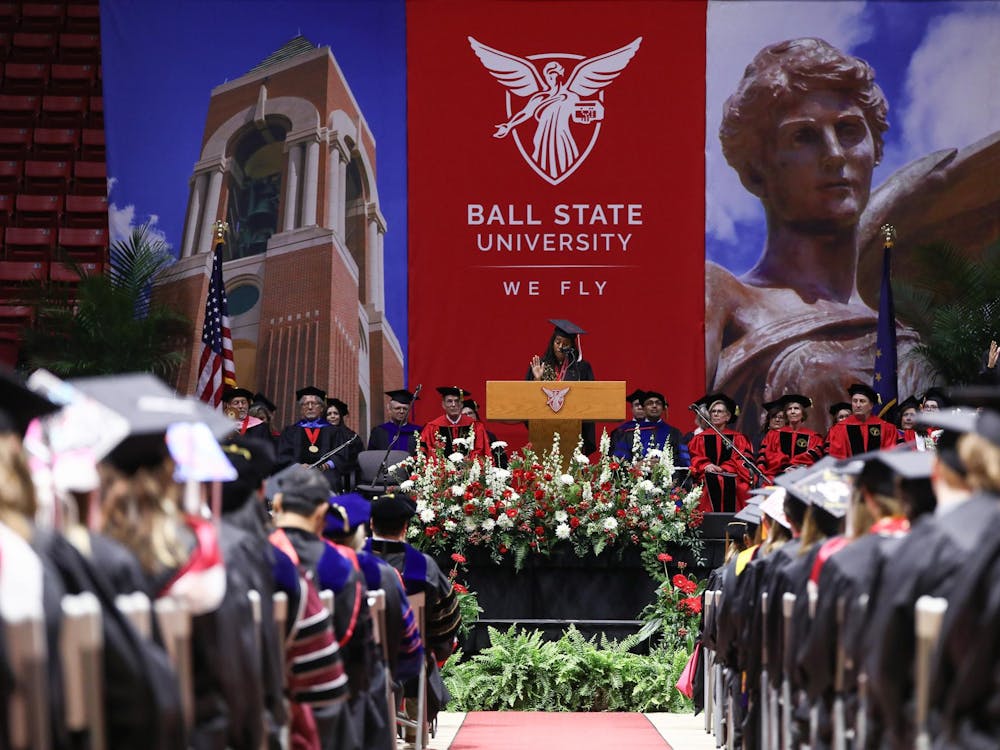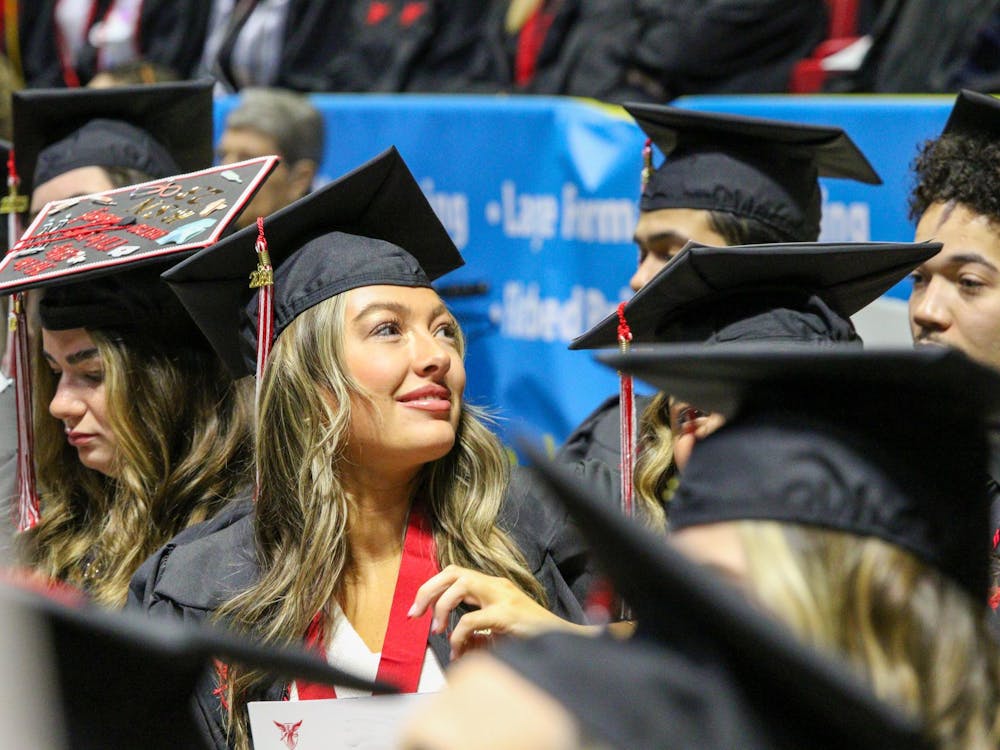When an able-bodied person wakes up for class, they might struggle with the snooze button, swing their legs over the side of the bed and rub their eyes.
When Donelle Henderlong wakes up, she has to wait until her attendant helps her into a lift, which puts her into her power wheelchair. Henderlong has cerebral palsy and is completely dependent on her chair.
The 2015 alumna was one of 12 students graduate student Nequel Burwell and faculty members Roger Wessel and Thalia Mulvihill studied in their research on attendant care for students in wheelchairs with physical disabilities. The Journal of Postsecondary Education and Disability published the research in Fall 2015.
Burwell’s research was the first of its kind. It showed students with disabilities who use wheelchairs face issues with time management, first feelings, self-advocacy, parental involvement and finances.
For those who need attendants to get through daily activities, they have to train their bodies to their attendant's schedule, Wessel said. An aide's schedule is pre-determined, which calls for extra planning.
“Any personal things you cannot take care of yourself, you’ll need your attendant around for," Wessel said. "So, if it’s 10 a.m. and you need to use the bathroom, you need to wait."
But Henderlong said even if her attendant didn’t show up to help her out of bed, she still wouldn’t miss class.
“I just got creative," she said. "Did I miss anything? Absolutely not. I don’t base my ability to participate in life on someone else."
Self-advocacy is an important component for students with disabilities using wheelchairs, according the research. Students balance social life and studies with their aide’s schedule while managing their relationship with the aide.
The research also found that parental involvement is usually hands-on. Parents may arrange attendant care over the phone or try to fix issues from a distance. This, however, was not Henderlong’s experience.
Henderlong initially chose to go to Valparaiso University, close to where she grew up, so she would not have to deal with the transitional issues of moving from home. But her mother pushed her to go to Ball State to take advantage of opportunities it would give her.
When Henderlong arrived at Ball State, she hired an attendant through a home health aide service. The university doesn't offer any services for students to hire aides, Larry Markle, director of Disability Services, said.
“It was kind of weird. You don’t really think about hiring people when you’re 18,” Henderlong said.
The aide helped her three to four times a day for an hour or two each time, helping her get out bed, shower, use the restroom, get food and get into bed at night.
“Think about training someone on how you like your very personal things, like washing your hair or putting on your clothes," Wessel said. "These are things our students had to think about when they came to Ball State.”
During her time at Ball State, Henderlong changed aides several times. After a while, she decided she needed to make adjustments.
If an aid was scheduled to come at 10 p.m., this would interfere with Henderlong’s social life. Henderlong — like others in the study — began hiring friends.
“Some of our students would have friends that would say, ‘No, come with us. I can help you. I can put you to bed tonight,’” Wessel said he found in the research.
One friend was 2013 alumna Chaneigh Carr, who now works at Forte Residential, a company that helps people with special needs with day-to-day living.
Carr said working with Henderlong was emotionally helpful for her. Sometimes Carr would stay in Henderlong’s room through late-night study sessions, she said.
“My twin sister had cerebral palsy, and I always helped take care of her," she said. "So when I was able to help [Henderlong], it really just helped me. It didn’t seem like a job. We became best friends."
Carr said she has always had a passion with assisting people who have issues with mobility.
“It’s just helping — everybody needs help with something,” Carr said.
Henderlong now lives alone and works as the Disability Services Coordinator at Purdue University North Central.
“Now I have an aide help me with the typical things — [getting] in and out of bed, clothes, stirring a pot, being an extra set of hands or feet — when I need them,” she said.
Wessel, Carr and Henderlong each said an important piece of working with people with disabilities using wheelchairs is to consider individuality first, and know there is more to them than the chair.
“I want people to know I never use [my] chair for pity unless if it’s a joke," Henderlong said. "It’s a privilege to have an able body, but I am so grateful for the life I have."





